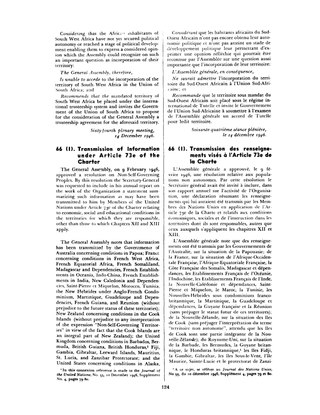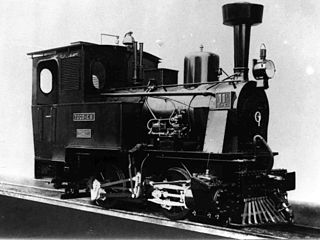
Togo, officially the Togolese Republic, is a country in West Africa. It is bordered by Ghana to the west, Benin to the east and Burkina Faso to the north. It is one of the least developed countries and extends south to the Gulf of Guinea, where its capital, Lomé, is located. It is a small, tropical country, spanning 57,000 square kilometres with a population of approximately 8 million, and it has a width of less than 115 km (71 mi) between Ghana and its eastern neighbour Benin.
The history of Togo can be traced to archaeological finds which indicate that ancient local tribes were able to produce pottery and process tin. During the period from the 11th century to the 16th century, the Ewé, the Mina, the Gun, and various other tribes entered the region. Most of them settled in coastal areas. The Portuguese arrived in the late 15th century, followed by other European powers. Until the 19th century, the coastal region was a major slave trade centre, earning Togo and the surrounding region the name "The Slave Coast".

The United Nations Trusteeship Council is one of the six principal organs of the United Nations, established to help ensure that trust territories were administered in the best interests of their inhabitants and of international peace and security.

British Togoland, officially the Mandate Territory of Togoland and later officially the Trust Territory of Togoland, was a territory in West Africa under the administration of the United Kingdom, which subsequently entered a union with Ghana, part of which became its Volta Region. The territory was effectively formed in 1916 by the splitting of the German protectorate of Togoland into two territories, French Togoland and British Togoland, during the First World War. Initially, it was a League of Nations Class B mandate. In 1922, British Togoland was formally placed under British rule, and French Togoland, now Togo, was placed under French rule.

Sylvanus Épiphanio Olympio was a Togolese politician who served as prime minister, and then president, of Togo from 1958 until his assassination in 1963. He came from the important Olympio family, which included his uncle Octaviano Olympio, one of the richest people in Togo in the early 1900s.

Togoland, officially the Togoland Protectorate, was a protectorate of the German Empire in West Africa from 1884 to 1914, encompassing what is now the nation of Togo and most of what is now the Volta Region of Ghana, approximately 90,400 km2 in size. During the period known as the "Scramble for Africa", the colony was established in 1884 and was gradually extended inland.

Elections in Togo take place within the framework of a presidential system. Both the President and the National Assembly are directly elected by voters. Togo is a one party dominant state with the Union for the Republic in power.

Chapter XI of the United Nations Charter defines a non-self-governing territory (NSGT) as a territory "whose people have not yet attained a full measure of self-government". Chapter XI of the UN Charter also includes a "Declaration on Non-Self-Governing Territories" that the interests of the occupants of dependent territories are paramount and requires member states of the United Nations in control of such territories to submit annual information reports concerning the development of those territories. Since 1946, the UNGA has maintained a list of non-self governing territories under member states' control. Since its inception, dozens of territories have been removed from the list, typically when they attained independence or internal self-government, while other territories have been added as new administering countries joined the United Nations or the UN General Assembly (UNGA) reassessed their status.

French Togoland was a French colonial League of Nations mandate from 1916 to 1946, and a UN trust territory from 1946 to 1960 in French West Africa. In 1960 it became the independent Togolese Republic.

Volta Region is one of Ghana's sixteen administrative regions, with Ho designated as its capital. It is located west of Republic of Togo and to the east of Lake Volta. Divided into 25 administrative districts, the region is multi-ethnic and multilingual, including groups such as the Ewe, the Guan, and the Akan peoples. The Guan peoples include the Lolobi, Likpe, Akpafu, Akyode, Buem, Nyagbo, Avatime, and Nkonya. This region was carved out of the Volta Region in December 2018 by the New Patriotic Party. The people of the Volta Region are popularly known as Voltarians. This group includes the Ewes, Guans and other minor tribes living in the Volta Region. The people of the Volta Region are popular known for their rich cultural display and music some of which include Agbadza, Borborbor and Zigi.

This is a survey of the postage stamps and postal history of Togo.

A plebiscite was held in British Togoland on 9 May 1956 to decide the status of the territory. Since World War I, the territory had been a League of Nations mandate under British control, and became a United Nations Trust Territory after World War II. The referendum offered residents the choice of remaining a Trust Territory until neighbouring French Togoland had decided upon its future, or becoming part of soon-to-be Ghana. The Ewe-based Togoland Congress campaigned against and preferred amalgamation with French Togoland.

Rail transport in Togo began in 1905.

The Ewe Unification Movement was a series of west African ethno-nationalist efforts which sought the unification of the Ewe peoples spread across what are now modern Ghana and Togo. It emerged as a direct political goal around 1945 under the colonial mandate of French Togoland, however the ideal of unifying the group has been an identifiable sentiment present amongst the ethnicity's leadership and wider population ever since their initial colonial partitions by the British and German Empires from 1874 to 1884. While there have been many efforts to bring about unification, none have ultimately been successful due to both the platform itself often being a secondary concern for political leadership, or inter/intrastate conflicts overshadowing them.

The Western Togoland Rebellion is an ongoing separatist revolt led by the Ewe nationalist organization Western Togoland Restoration Front (WTRF) against the government of Ghana. The group seeks the independence of former British Togoland.

The Political history of Ghana recounts the history of varying political systems that existed in Ghana during pre-colonial times, the colonial era and after independence. Pre-colonial Ghana was made up of several states and ethnic groups whose political system was categorized by 3 main administrative models; Centralized, Non-centralized and Theocratic states. In the colonial era, the British Empire employed different forms of government among its four territorial possessions in the Gold Coast. Indirect rule was implemented in the late 19th century after its success in Northern Nigeria. From the 1940s, native Ghanaians yearned for more autonomy. This resulted in the several constitutional reforms as well as the creation of the office of the Prime Minister in 1952.

Togolese nationality law is regulated by the Constitution of Togo, as amended; the Togolese Nationality Code, and its revisions; the Code of Persons and Family; the Children's Code; and various international agreements to which the country is a signatory. These laws determine who is, or is eligible to be, a national of Togo. The legal means to acquire nationality, formal legal membership in a nation, differ from the domestic relationship of rights and obligations between a national and the nation, known as citizenship. Nationality describes the relationship of an individual to the state under international law, whereas citizenship is the domestic relationship of an individual within the nation. Togolese nationality is typically obtained under the principal of jus sanguinis, i.e. by birth in Togo or abroad to parents with Togolese nationality. It can be granted to persons with an affiliation to the country, or to a permanent resident who has lived in the country for a given period of time through naturalization.

France–Togo relations are the diplomatic relations between the French Republic and the Togolese Republic. Both nations are members of the Organisation internationale de la Francophonie and the United Nations.















